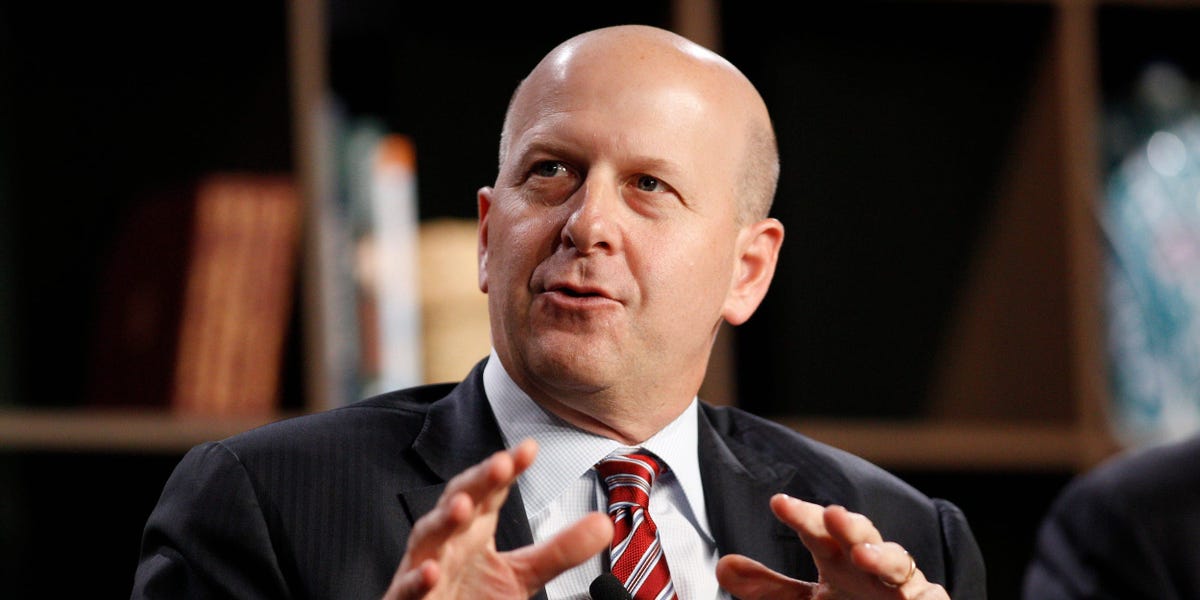Return-to-office orders look like a way for rich, work-obsessed CEOs to grab power back from employees::White-collar workers temporarily enjoyed unprecedented power during the pandemic to decide where and how they worked.
“These elite CEOs probably work 100-plus hours a week and they’re much more work-focused.”
No they don’t. Full stop. Let’s stop fabricating this bullshit. That’s 16hrs a day M-F with 10hrs Sat/Sun. Elon Musk is not doing those hours period, let alone while also finding time to play Elden Ring.
Yeah people need to stop acting like they’re the most hardworking people out there. They definitely are not. Especially when you can be CEO of multiple companies and no one bats an eye.
I totally agree. I always think it’s weird when they have interviews or podcasts about talking to CEOs and they all say something like “you just have to work hard enough”. Yeah. Okay.
Where are the podcasts where they ask lottery winners for some vapid aphorism about hard work paying off?
Even if Elon Musk is putting in 100-hour weeks, he’s the CEO of five companies, which means being CEO of one company is a half-time gig at most.
Or 20%? 🤔
Highly doubt he actually plays Elden Ring
He played it enough to make one of the worst builds I’ve ever seen. A heavy rolling mage with two shields…
CEOs DO NOT WORK HUNDRED HOUR WEEKS.
CEOs DO NOT WORK HUNDRED HOUR WEEKS.
CEOs DO NOT WORK HUNDRED HOUR WEEKS.
CEOs DO NOT WORK HUNDRED HOUR WEEKS.
NOBODY FUCKEN DOES, YOU’D BE A BRAIN DEAD ZOMBIE
deleted by creator
My main take on the pandemic is that employers involuntarily gave their employees a huge benefit set by having to go remote. They had to give this benefit set not just to their buddies or a select few, but to people they consider undeserving or do not trust.
All of their moves since have reflected that they want to put the cat back in the bag.
It’s not about productivity at all and never has been. The studies even called the bluff by comparing productivity and determined that productivity is higher with WFH. The reaction to that has been to ignore the data and lean back into gut feel, because high level management isn’t really about productivity.
You can tell this simply by the fact that their natural environment is the office and very few things in an office environment are actually about productivity. The reason they want return to office is the same reason they wanted open offices: control. It’s easier for them to hover behind you in an open office plan. It’s easier for them to order you around when they don’t have to call you first.
It’s all about control, and likely always has been.
A lot of that control is about perceived obedience and perceived productivity.
In many areas you’ll find that ACTUAL productivity matters far less than perceived productivity.
And it’s easier to perceived productivity when you can walk a floor and see people work as you walk by.
This is 100% true and I had to learn it the hard way; perception matters just as much, if not more than getting the job done.
“When you look annoyed all the time, people think that you’re busy.”
- George Costanza
I’ve lived by this advice my whole career and it’s never failed me.
high level management isn’t really about productivity
High level management is about preserving your position as a high level manager and securing the maximum compensation for it.
Managers are managers because they’re good at playing power games, not because they’re good at their jobs. These games are harder to play if people aren’t there. That’s why they’re so scared.
Seems like the commercial real estate collapse has a lot to do with it too.
Eh, that may play a role for the big firms, but most of the small to mid sized businesses just lease their real estate. They’d realistically come out ahead by downsizing their offices.
I think what we are seeing is management really struggling to adapt and find reliable metrics for performance management as well as to promote employee retention and engagement without the social bonds of an office culture.
How so?
Super simplified version: the office buildings are losing value due to low occupation. Owners of those buildings lose money if the value goes down. Those owners do not want that.
My understanding is as follows: A lot of corporate debt is backed by the real estate. For example, McDonald’s food operations are far less valuable than its real estate portfolio. If that property is now worthless because no one wants it and it’s unoccupied, banks now have assets worth less than what’s owed on them. That in turn means when the loan term ends, banks can’t just re-finance the debt, because the collateral that secured the loan in the first place isn’t worth what the debt is. That means big problems for companies who now need those loans as a source of cash to pay off the old loans. They now have to scrape up actual cash to pay, leading to more austerity. Because corps can’t pay the banks, the banks lose out on revenue, which means they have to tighten their belts, and so on and so on in a self-reinforcing spiral. If the corps default, the banks can seize the assets, but again, they’re worthless, so it’s a one-two punch.
It’s a giant shell game, and from what I’ve read economists are afraid a 2008-style crash may be in the works due to the cycle of debt above.
deleted by creator
A lot of the foreign currency was brought back under the trump years when companies were given a one time reduction in taxes to repatriot their cash. From 35% to 15% tax rate.
https://www.latimes.com/business/story/2019-12-19/companies-repatriate-1-trillion-since-tax-overhaul
deleted by creator
To add what other folks have said… Banks have a conflict of interest in regards to employees coming back into the office: They hold the mortgages on all that office space. If the work-from-home trend doesn’t let up they stand to lose trillions of dollars.
The bigger the bank the more they stand to lose. This is why banks like Goldman Sachs are extremely vocal about bringing people back into the office and grasp at every little thing that can find to back their claims that, “it’s better”. Even if the arguments they’re making are based on 100% bullshit.
Example: You’ll often hear big bank executives say things like, “teams that work near each other work better” knowing full well that their global workforce doesn’t actually “sit near each other”. On any given internal team employees will live all over the damned world so even if every one of them came back into the office they still wouldn’t be anywhere near each other.
We know this is 100% bullshit anyway because if they actually stood behind these words they’d issue mandates that huge amounts of employees be relocated to the same physical locations and that hiring could only happen locally. They’re not going to do that though because they know what they’re saying is bullshit.
These elite CEOs probably work 100-plus hours a week and they’re much more work-focused.
Oh ffs. I have nothing against Nick Bloom but this statement is so BS. Even if “elite CEOs” could work 24 hours per day, 7 days per week their salaries could not be justified by any means. There are just not enough hours in a day to actually do it.
The mandates symbolize the sharp disconnect right now between the way CEOs and employees think about work.
He’s right about that though.
When I was an intern at a large company, the CIO talked to our small group of interns. He said he worked around that much, and I don’t think he was lying. He told us about his typical day.
The company was located in a big city and he lived in the suburbs with a long commute by taxi and train. He would get up at 5AM to start the commute. He worked on the train and taxi. Then he would leave the office at 5PM, work on the commute home, have dinner and family time for 2 hours, then work until bed at around midnight. He said he was lucky he only needed 4 hours of sleep and how much he treasured the 2 hours he spent with his family every day. It was the only time he refused to take calls.
I think part of the problem why executives mistreate their workers so much is that they themselves are overworked and exhausted. Despite having a ton of money, they don’t get to enjoy it, so it becomes meaningless.
And there’s people out there who work just as much but will never make the same amount of money. When you have the privilege to never worry about cleaning, laundry, taking care of your kids, grocery shopping, cooking, and all the numerous bullshit things that just add up to consume your time that you can wave away when you were born rich allow you to do that. They don’t consume your day and energy.
Not that everyone if suddenly given that kind of time would do what he does, but I don’t think they should. I think he’s the type of person who looking back on his deathbed will regret only spending 2 hours a day with his family. That’s really sad.
I’ve worked as cook and sous chef for about 13 years now. Most I ever made was 55k a year and at that time I was working ~75 hours a week. If we extrapolate to 100 hours… Carry the one… Yup! Still a far cry from the paycheck of a CEO.
deleted by creator
Sure, but second rate employees deserve workers rights too. We should at least be careful to not build our rights on their backs.
For a lot of positions. Remote work is not just the past and the present. It is also the future.
Yep. Once the old boomer CEOs die off, I have a feeling remote work will be more readily available.
It was never about productivity. It was always about control.
These dingles are gonna flex like this just before another Covid surge, I guess?
Oh my god, so much this! The only apparent reason I see for many of the “return to office” cases I know about is for middle managers to be able to hold court and lord over their subordinates. As for the actual work that needs to be done, I see little advantage (in fact, constant interruptions for management and colleagues make it quite worse).
Sure would be a shame if a lot of those office buildings burned down for no reason…
That would fix everything for the owners because then they can claim insurance and drop the bad assets at the same time
Is FTFY
I’ve seen just as many reports that work from home is productive as those that say it isn’t. Maybe these companies just might be looking to be efficient? Why is it always a Bond villain plot?












